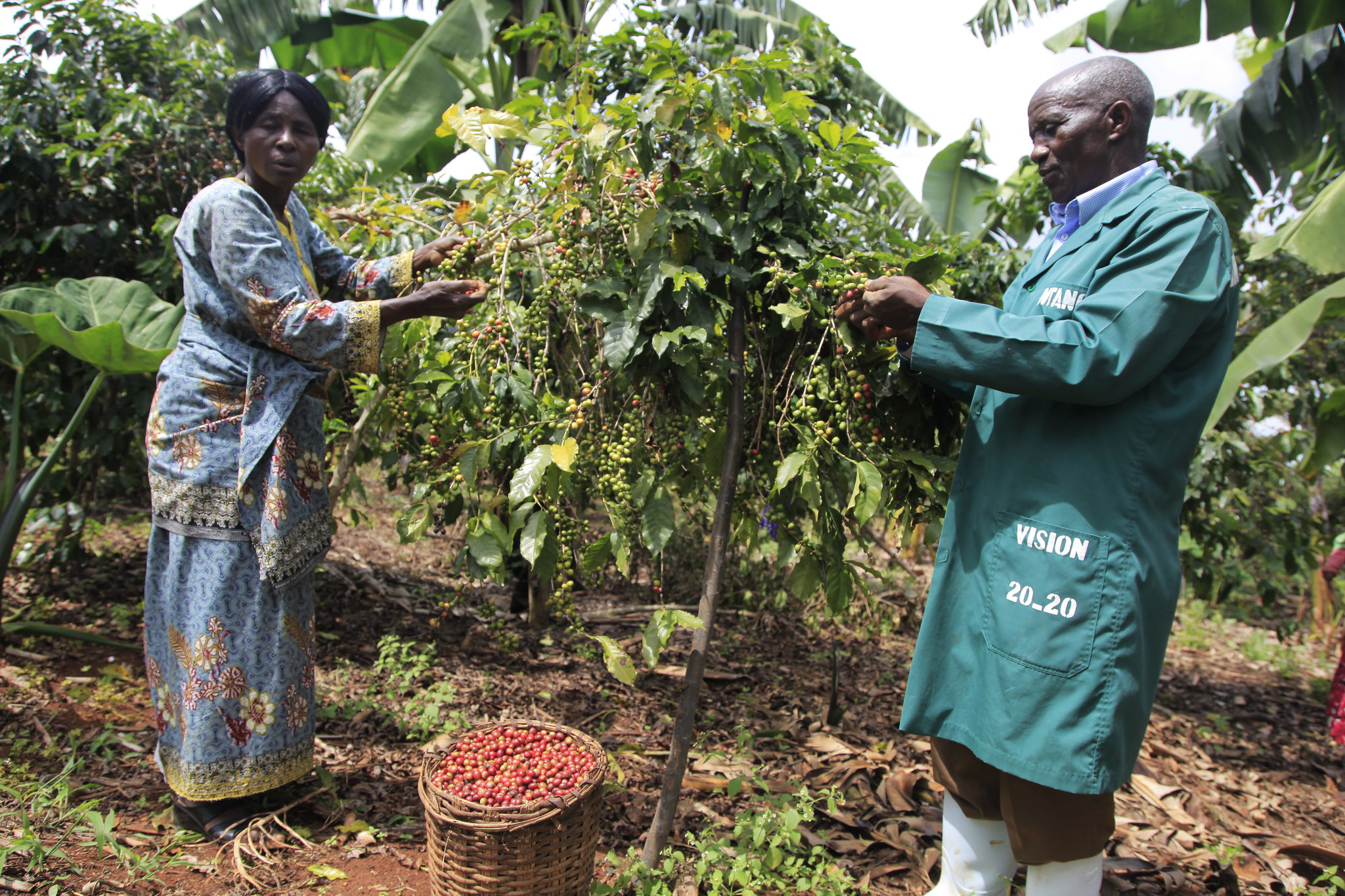

The producers of the world’s most important beverage crop – coffee – are not getting enough income to lead decent lives and prosper, a concern that threatens their future and that of the crop, experts have warned.
This a pressing issue that was discussed by the 3rd World Coffee Producers’ Forum (WCPF) – held virtually – hosted by Rwanda on Thursday, July 15, 2021.
It served as the base to develop guidelines, to be approved in the in-person gathering in Kigali, Rwanda in July 2022, for the creation of National Coffee Sustainability Plans that will help producing countries design and implement comprehensive coffee policies to secure the future of a coffee sector where coffee producers are prosperous and coffee production is sustainable.
The virtual conference held on Thursday, gathered more than 2,000 participants from 70 countries including coffee producers, industry representatives, government officials, multilateral agencies, coffee business dealers from across the world to help understand and seek solutions for many issues threatening farmers' livelihoods and coffee production.
At the conference, discussions centred on the theme "Coffee Farmers’ Prosperity; supporting coffee growers to further their social and economic development, and support sustainable inter-generational growth, success, and opportunity in the coffee sector.
Indeed, according to Coffee Barometer 2018, while coffee is increasingly lucrative with a retail value of $200 billion in 2015, less than 10 percent of the aggregate wealth stays in the producing countries.
This biennial report published by the Coffee Barometer Collective and includes Hivos, Oxfam Belgium, Solidaridad and Conservation International noted that the figure comprises the income of farmers, exporters and government agencies involved in growing the beans and exporting them internationally.
Such imbalance, it noted, illustrates the pressing need for transparency of transactions in order to achieve re-distribution, pointing out that a sustainable coffee sector more equally distributes proceeds to farmers.
Whereas coffee companies are busy conquering markets, cutting costs and driving efficiency, coffee farmers are struggling to get their fair share of the total value added in the coffee industry, the report indicated.
Verediyana Uwamariya, a coffee farmer in Nyaruguru District, is one of the farmers struggling to achieve economic prosperity as the income she gets from this crop is inadequate.
The farmer told The New Times that production per coffee tree is about 2.5 kilogrammes of cherries while a farmer gets about Rwf250 a kilogramme, adding that; overall, farm productivity is low compared to the cost of production.
"I invest much of my income in nurturing coffee trees so that they give yield. The proceeds I get are small that I cannot improve my livelihoods,” she said, citing expenses on grass mulching for her small coffee plantation on which she harvests around 200 kilogrammes of cherries per season.
Speaking during the above-mentioned forum, Gerardine Mukeshimana, Minister of Agriculture and Animal Resources said that coffee production has been at the core of farm families’ livelihoods for so many generations, adding that it is also the source of cash income for over 350,000 households that are operating on 42,000 hectares of land in Rwanda.
Last year, Mukeshimana said, coffee as a commodity was the fourth contributor to Rwanda’s foreign exchange earnings, which means it plays a tremendous role in improving the country’s trade balance, but also its economic performance.
However, she said, the processing segment of the coffee sector, and inter-generational and sustainable coffee industry requires that those at the base, especially coffee producers have a shared prosperity, Mukeshimana observed.
"As they currently struggle to keep up with the increased production costs and climate change, export, processing, wholesale, and retailing companies need to include the producers as full and equal partners,” she said.
"The proportion for value-added needs to equally trickle down to the coffee producers as it does for the downstream players so that the coffee producers and the next generations can have incentives to continue investing in coffee production and maintain the value chains,” she said.
Hailemariam Desalegn, Board Chair of Alliance for a Green Revolution in Africa (AGRA) said that more than 25 million families grow coffee all over the world, most of them smallholder producers, but expressed concern that they are grappling with small income.
"Although coffee farmers are so beloved around the world [because they produce the sought after coffee], they still struggle to make a decent living. In many countries they can’t even cover their cost of production, and face every day deeper and deeper challenges,” he said, calling for an approach that ensures increased income and improved welfare for coffee farmers.
In his presentation on the prosperity of coffee producers, Prof Jeffrey Sachs, Director of the Center for Sustainable Development at Columbia University in the US, said that all over the world, there is ‘the continuing poverty of coffee growers’.
"Because while coffee is the world’s most important beverage, and the world’s most healthy beverage, ... it is not by itself providing the kind of decent livelihoods and prosperity for the millions of millions of farmers engaged in growing coffee,” Sachs said.
He said that that the challenge is to help set a new global course of policy of companies, governments of the United Nations that can address the issue and ensure the prosperity of coffee farmers.


